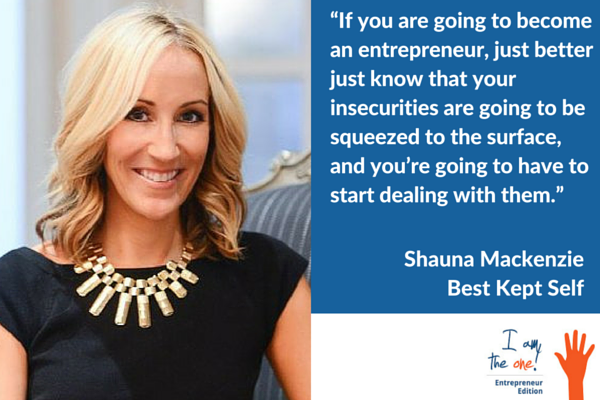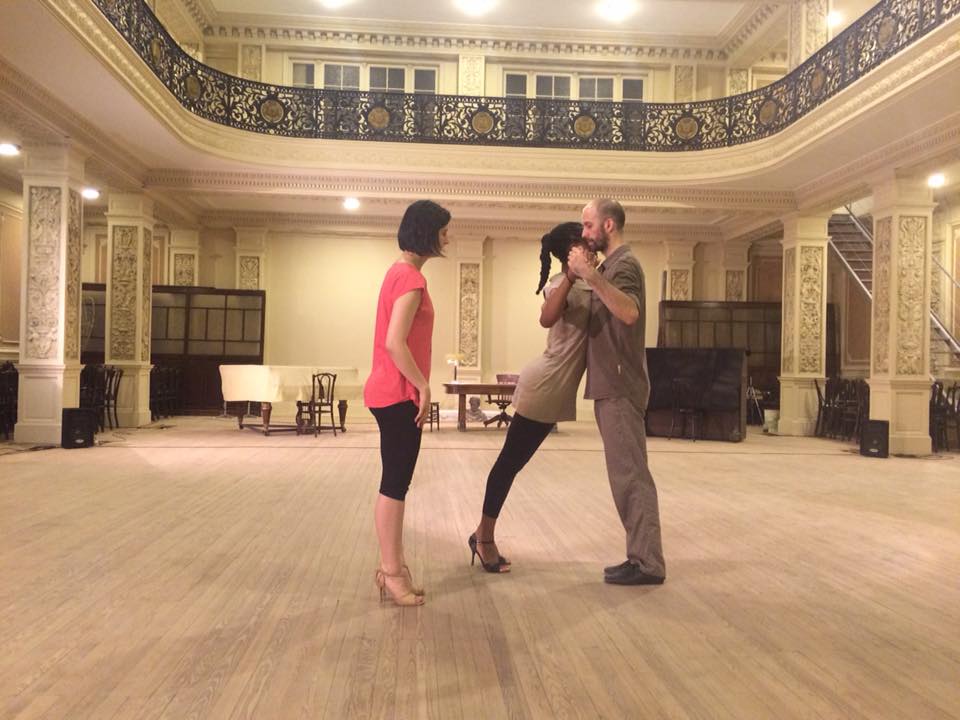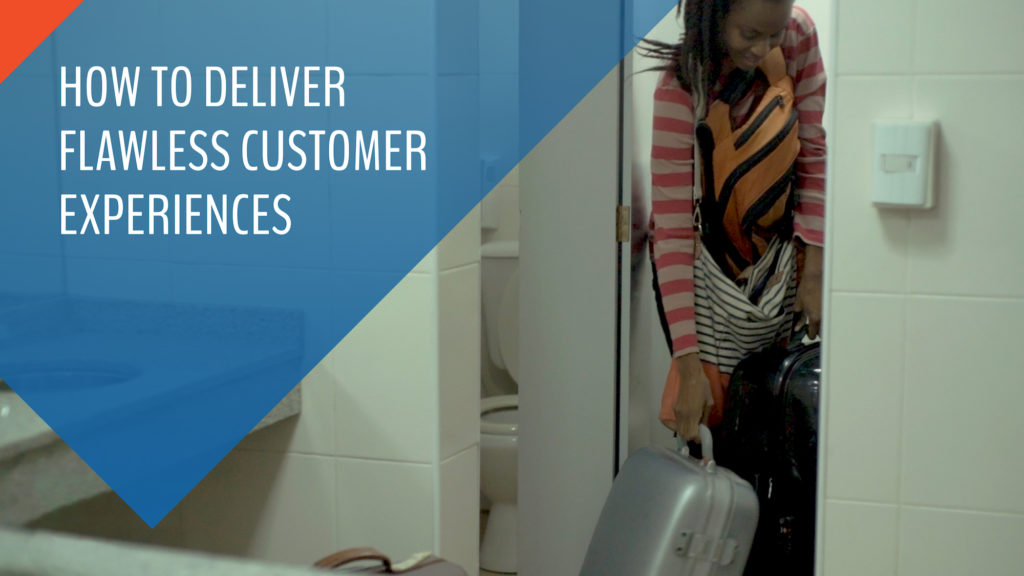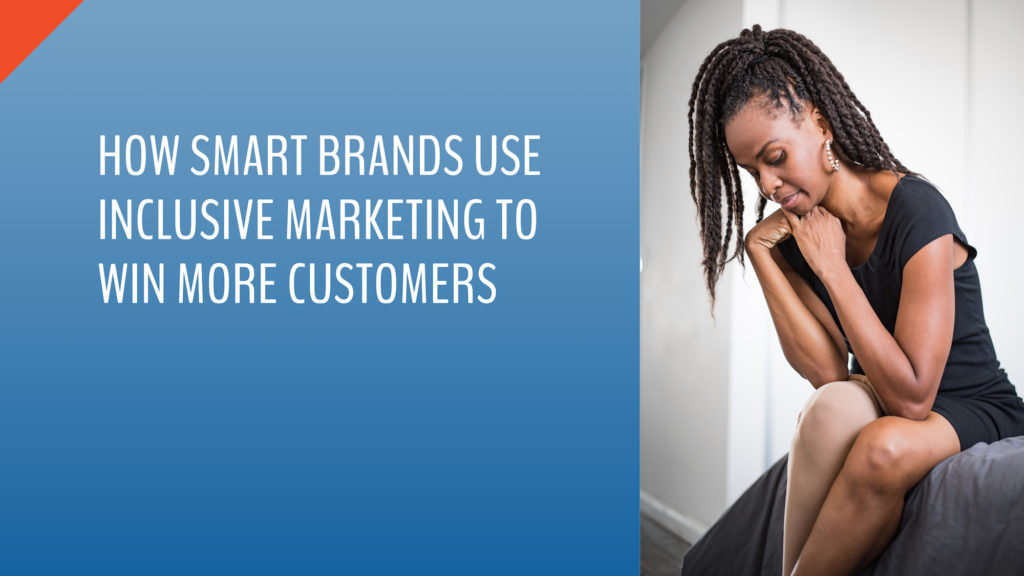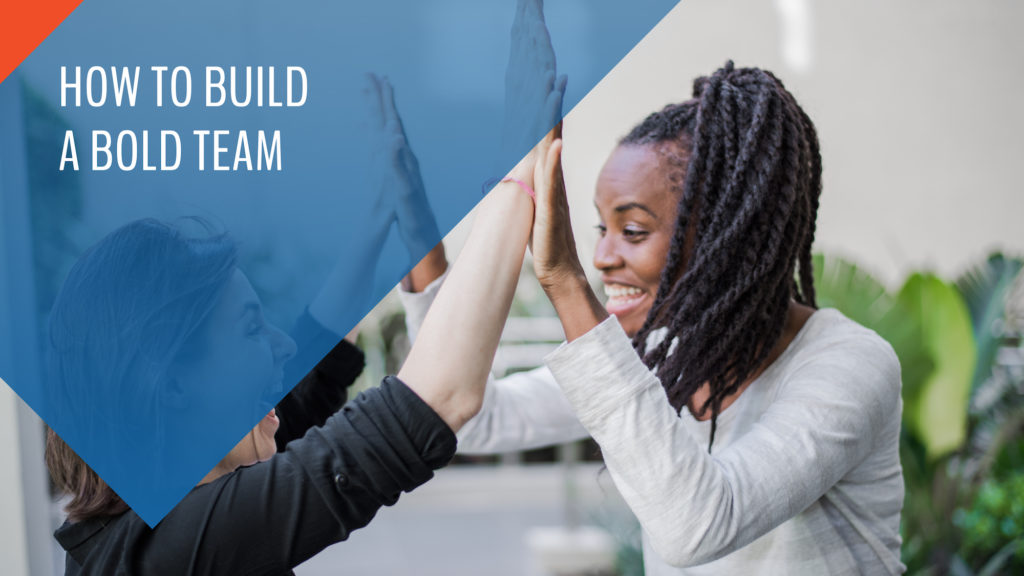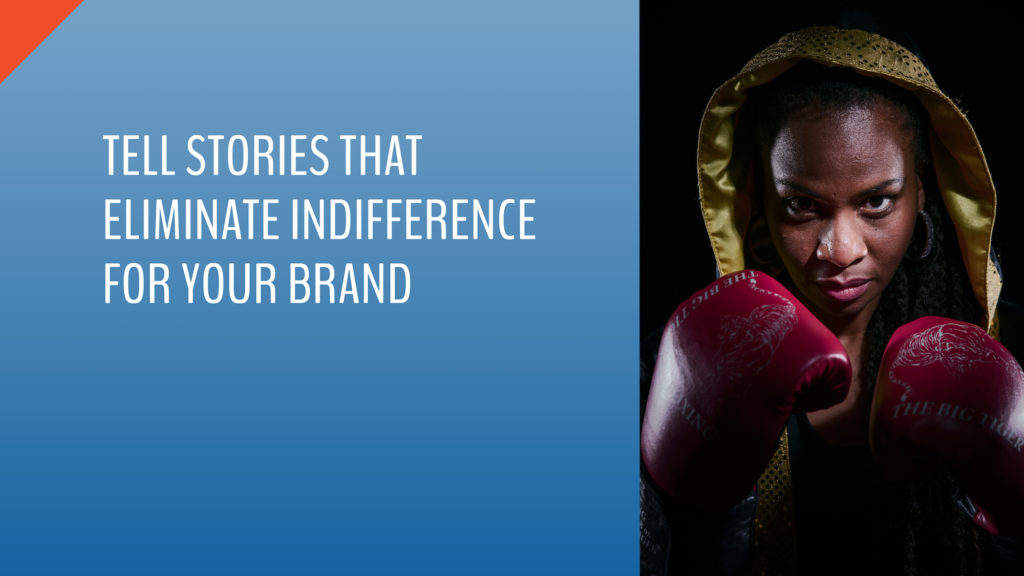Entrepreneurship has a dirty little secret.
Very few people talk about it, but almost every business owner I know has struggled with it at some point during their journey. Some battle it every day. And how you respond to it is often the difference whether you succeed as an entrepreneur or not.
And how you respond to it is often the difference between whether you become a successful entrepreneur or not.
That’s why I was delighted when a recent guest on the I Am the One: Entrepreneur Edition podcast addressed it head on.
What’s the secret you ask? Well I’ll tell you.
But first, let me explain how this issue played out for me over the weekend.
What happens when you try to be great
I’m in Buenos Aires, the mecca of tango. And on Saturday, I had the privilege of having a private tango lesson with two fantastic dancers and instructors. And it also helped, that the class was in a beautiful building.
I romanticized the whole thing in my head. And then the instruction started.
They gave me some exercises to do to practice walking. And when you hear walking – it seems like that should be easy.
But I struggled.
“Tango is all about walking in a more elegant way.”
That’s the commentary I got from a different instructor that was just hanging out watching the lesson.
So I walked, and I walked, and I walked. And then I walked some more. Sometimes I was good. Sometimes I lost my balance. Many times it was anything but elegant.
“You will get better with practice. But you have to practice,” one of the teachers told me.
“Yeah, yeah, I know,” I thought.
Eventually, they put me out of my misery, and we started dancing.
As we danced, they corrected. They gave me pointers. They told me what I was doing well. But they spent a good amount of time helping me see my bad habits. Showing me the proper ways to position my feet and carry my weight.
They did everything they were supposed to do to help me be a better tango dancer.
But what they couldn’t do for me, although they tried, was help me address my insecurities.
Most dancing is like that. It makes you feel alive, it enables you to express yourself. But it also brings to light a ton of self-doubt along the way.
And so as I was there in that private class in that beautiful building in Buenos Aires, all my insecurities showed up.
“You’re not graceful.”
“You’re not in tune with your body – you’ve struggled with this before, and you’re not going to be able to get it.”
“You’re not going to be able to master this. At best, you will only be a mediocre dancer.”
“You’re not as good as you thought you were.”
“You suck.”
For a moment, the vicious voice in my head was so bad, I started to talk myself into taking the easy route out, and hanging up my dance shoes. No bueno. Thankfully, I came to my senses. 🙂
But the truth is, as much as I love dancing, my lack of confidence holds me back. It happened when I danced salsa. And it’s happening now as I learn tango.
And if I don’t deal with it, and find a way to overcome it, I won’t get better.
Why being an entrepreneur is a lot like learning how to dance
Back to that podcast interview I was telling you about. I was chatting with Shauna Mackenzie, founder of Best Kept Self, a community devoted to self-help for the self-employed.
Toward the end of the interview, Shauna made this statement:
“If you’re going to become an entrepreneur, just better know that your insecurities are going to be squeezed to the surface, and you’re going to have to deal with them.”
Entrepreneurship does to business owners, what learning to dance has done to me. It’s brings all their dirty laundry to the surface.
Sure, we may be able to hide our baggage and mask it, but it is not a sustainable way to operate. And if we want to progress, if we want to grow, then we have to deal with our stuff.
What are common insecurities that entrepreneurs have to deal with?
Not feeling good enough for one.
Here’s what Joanna Weibe, co-founder of Copy Hackers, author, and popular conference speaker had to say about her impostor feelings:
I’m most limited by my belief that I’m not good enough. It stays strong no matter what I accomplish. When I finish a talk at a conference, I beat myself up for days or weeks afterward – so badly that I usually have to take a sleeping pill for the week following the event. Crazy, right? I’m so certain of the inevitability of my failures – large and microscopic – that I don’t even like to schedule a newsletter to go out if I’m not sitting at my desk when it does… because what if a link is broken? What if there’s a typo? Ridiculousness. But, alas, that’s how I’m wired.
In addition, business owners experience control issues, lack of focus and direction, and fear of stepping outside of their comfort zone.
These issues, gone unchecked impact you both on a business and personal level.
Another one of my podcast guests, Tom Tancredi, co-founder of Dom & Tom, a mobile and web-app development company, had this to offer:
“If you have vices, and your company is growing, your vices will grow with it.”
Tom struggled with his weight, and talked about how he put on thirty pounds after starting his business. Eventually he was able to get his weight back under control.
It doesn’t matter how successful you are. As you continue your journey as an entrepreneur, your insecurities will show up.
So it’s best to deal with them when they do pop up, so they won’t hold you back from living the good life as you build your dream business.
4 Steps to overcoming your insecurities
The dirty little secret of entrepreneurship, can turn into a gift for you. If you let it. Personal growth rarely feels good in the moment, but boy will it help you make life better in the long run.
So here’s the approach I’m taking to deal with my stuff as it relates to tango. And since our insecurities don’t exist in a vacuum, if you apply this approach to the issues you uncover as you grow your business, you’ll see positive results too.
Expose the dirt
Admitting you have a problem is always the first step. Just saying out loud that you struggle with a particular challenge or issue robs it of its power over you.
It keeps you from suppressing your feelings or denying that they aren’t there. It gets you to expose all the dirt you’ve previously swept under the rug.
Sure the vulnerability of exposing your personal issues don’t feel good. No one wants to rip a band-aid off an open wound. But, it will help you get on your road to overcoming it.
According to Brene Brown, best-selling author and researcher, vulnerability is the key to living better:
“Vulnerability is the core of shame and fear and our struggle for worthiness, but it appears that it’s also the birthplace of creativity, of belonging, of love.”
It’s ok to not be perfect. And acknowledging your imperfections will give you the strength to get to a happier place.
Log some serious hours
Your potential is limitless. It doesn’t matter how good or bad you are at something today. If you desire to be better, and do the work to improve your skills, you can master a task and overcome perceived deficiencies. In anything.
Carol Dweck, researcher, and best-selling author explains her philosophy on this subject in her book Mindset:
“Do people with this mindset believe that anyone can be anything, that anyone with proper motivation or education can become Einstein or Beethoven? No, but they believe that a person’s true potential is unknown (and unknowable); that it’s impossible to foresee what can be accomplished with years of passion, toil, and training.”
In other words, practice makes you better. It improves your skills. And you would probably surprise yourself with your ability to master something.
Remember those dance instructors who were correcting all my wrong tango moves? The real difference between my abilities and theirs is largely due to practice.
I’ve been dancing for a year. They’ve been dancing for years. Up until now, I haven’t really practiced tango outside of classes. They participate in deliberate practice daily.
Deliberate practice over time is the difference between sucking badly at a skill, and being a master of it.
Malcolm Gladwell’s research backs this up as well. In his best-selling book Outliers, he made the case that the reason why some people succeed far more than others comes down to practice. A lot of it.
In the book, Gladwell referenced research from neurologist Daniel Levity:
“The emerging picture from such studies is that ten thousand hours of practice is required to achieve the level of mastery associated with being a world-class expert – in anything.”
I’ll bet world-class experts have a lot more confidence than those that sweep their problems under the rug, hoping they will magically go away.
World-class experts, are experts because they put the time in to learn and study their craft.
And if you want to overcome your insecurities, you’ve got to put the practice time in so you can.
Call for reinforcement
There’s nothing wrong with doing things on your own. But if you want to accelerate your progress, avoid bad habits, and get an honest assessment of your existing flaws, then outside support is necessary.
Coaches, confidants, mentors, and others who are where you want to go can also help you address the things you don’t want to. They can see your blind spots.
And they are very good about not letting you take the easy way out when something is difficult.
It’s the reason why the world’s top athletes, performers, and business people all have coaches. They know they will get farther, faster with the right people by their side.
And knowing that you’ve been trained in the right techniques by people who are trained to know, gives you an added advantage.
They are in your corner.
They want to see you succeed. Let them help you do that.
Force your hand
Go public. You’ve got to put your reformed self on display so you can’t hide.
Every time I go out to a milonga (tango dance party), I put my dancing skills on display. Yeah, I enjoy myself. But I often feel vulnerable, because there are so many wonderful dancers around me.
But I’m learning to get so fully present in doing the thing, that I don’t have any available energy to think about how I look, how nervous I am, or about what other people may be thinking of me.
The same goes for you. For instance, if you are terrified of telling other people about what you do, you’ve got to put yourself in a position that forces you to tell people about what you do.
You have to look for opportunities to step outside your comfort zone. What you don’t want to do is be someone who practices, but never gets any real world experience.
That’s what allows you to improvise, test your instincts, and see what life is really like.
That’s what helps you to overcome your fears, and progress steadily. That’s what will help you actively deal with your stuff so you can improve.
Insecurities grow when they are kept behind the curtain in private. But the minute you put yourself on a stage to give yourself a chance to succeed, you are putting those insecurities on notice that they will not get the best of you.
You can thrive as an entrepreneur
Being an entrepreneur will force you to grow. If you want to build a thriving business, there is absolutely no way around it.
So make both your personal and your professional growth a priority. Because if your business thrives, but you don’t personally, you’re not winning.
Want more strategies on how to put your personal growth on the front burner?
Check out the full podcast interview with Shauna McKenzie. She’ll highlight some other cool strategies to help you deal with the challenges and issues that come with being an entrepreneur on a personal level.
And if you’re down for practicing being vulnerable now, go ahead and drop a line in the comments, and let me know what insecurities entrepreneurship has revealed in you. Don’t worry, this is a safe space. 🙂

